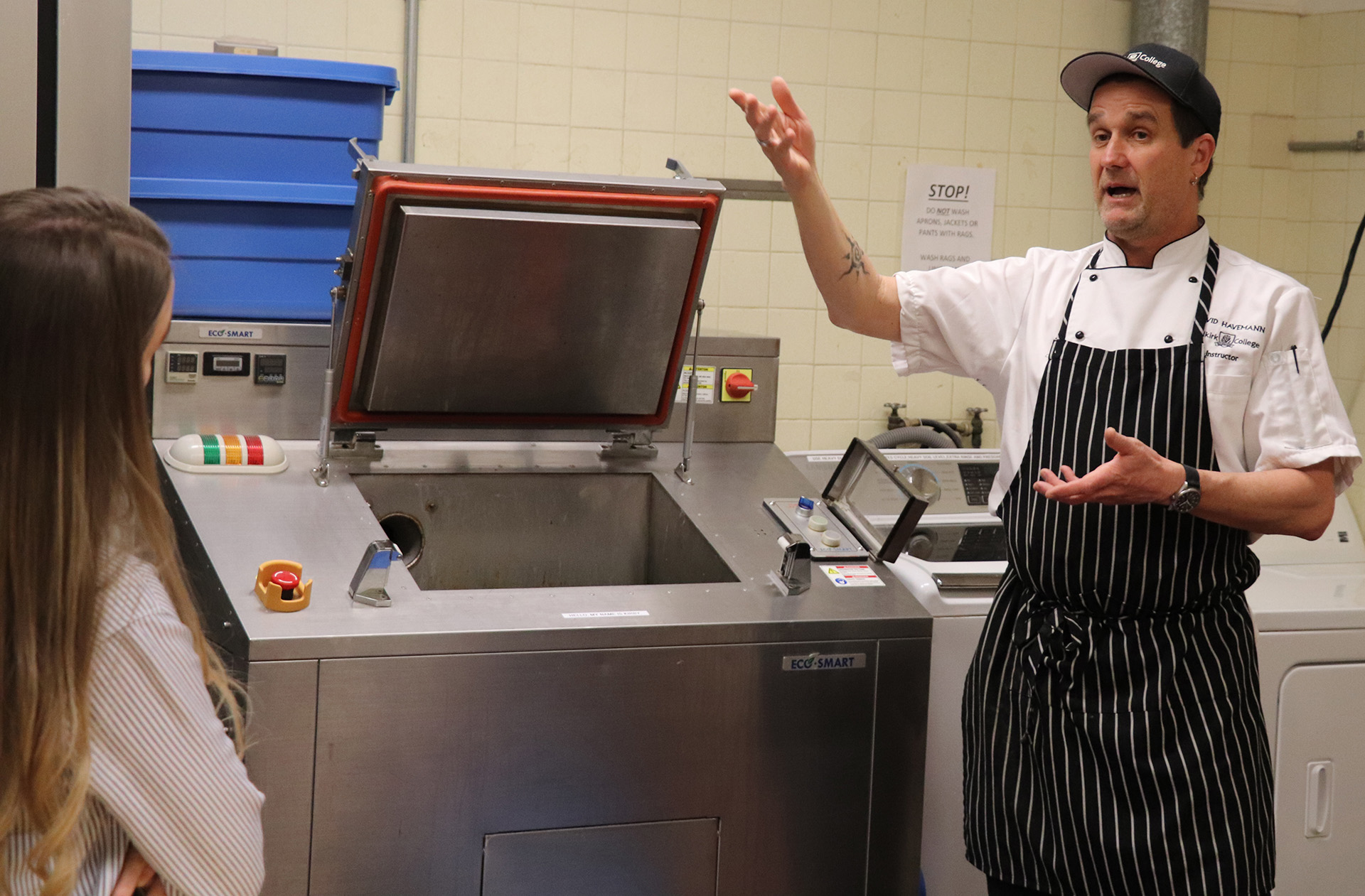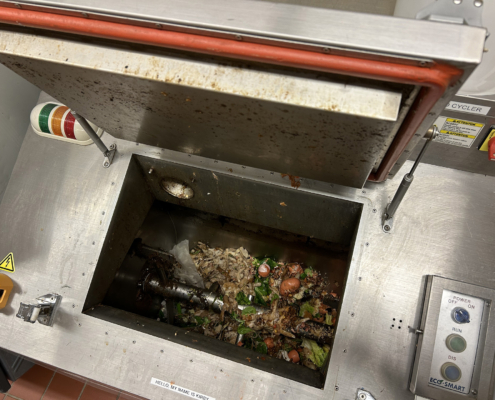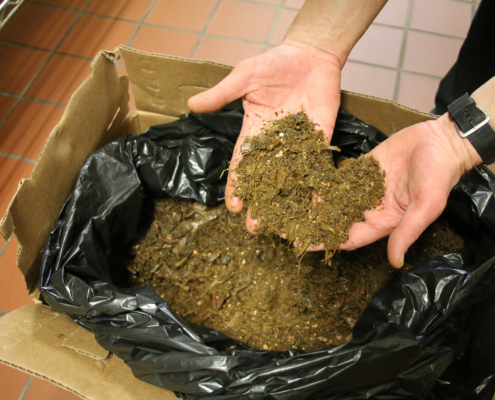Selkirk College finds success with Organics Waste Management Pilot Program is proving positive for pocketbooks and the planet
David Havemann, Selkirk’s Organics Waste Management Pilot manager
Nelson — Over the past two years, Selkirk College has been testing a commercial Foodcycler unit, integral to its Culinary Program at Mary Hall.
Supplied by the municipality as part of the Nelson Next Climate Plan — which emphasizes Organics diversion to reduce greenhouse gas emissions — the pilot project has significantly reduced the amount of commercial kitchen waste going to landfills and saved on cost for waste disposal.
More than 10,000 pounds (4,500 kg) of waste has already been reduced
“The results are fantastic,” says David Havemann, Selkirk’s Organics Waste Management Pilot manager. “Waste has been halved, leading to a reduction of 10,000 pounds of garbage since August 2022.”
Due to its success, Selkirk College has purchased additional Foodcyclers for its other two campuses.
Integrated easily into the college’s commercial kitchen environment, the industrial FoodCycler serves as a pre-treatment facility for organic waste, breaking down and dehydrating food scraps, from potato skins and chicken bones to food scraps.
This process substantially decreases the weight and volume of discarded food, leaving users with a nutrient rich soil amendment that can be used to enrich backyard gardens and greenspaces.
“The pilot at Selkirk College will help us determine if this is a viable solution in the broader commercial sector,” says Emily Mask, the City of Nelson’s Climate Programs Coordinator.
She’s optimistic about the broader application of the initiative.
“By reducing the volume with this type of unit, we reduce transportation emissions associated with hauling organic waste, which allows us to maximize emission reductions. We will continue with the pilot, but early indications are very positive. We’re pleased to be working with Selkirk College faculty and students on helping us achieve our shared climate goals.”
FoodCycler in Action
Odorless by-product
No more bear activity
Another notable outcome is the effect the project has on local wildlife interactions.
“Ever since we began diverting our organic waste from the main garbage,” Havemann says, “we’ve had no more bear problems.”
The Foodcycler by-products are virtually odorless and not as attractive to pests or wildlife.
The college has also fostered relationships with local farmers who repurpose dehydrated material within their crops.
The City of Nelson is currently focused on their free-to-users residential program.
As the first pre-treated organics program in Canada, the City of Nelson is dedicated to delivering and studying this unique approach to waste management.
All single-family homes are eligible for a FoodCycler within the City of Nelson.
An additional perk — small businesses can purchase an industrial unit or multiple household sized units for preferential pricing. Once proven successful, the city will explore this use in other applications such as multifamily homes.
Sign up today for our waitlist to get yours, at nelson.ca/organicsregistration









